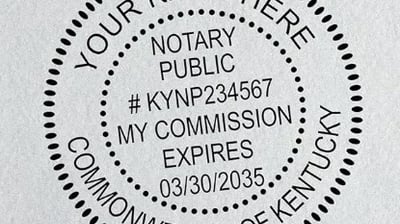Kentucky Notary Services
Experience. Trust. Reliability.
Over 8,000 closings completed.
15 years of notary experience.
17 years of paralegal experience.








Services Offered
Choose me to guarantee a flawless closing experience for your client!


Remote Online Notary (RON)
Remote online notarization (RON) is the process of notarizing a document remotely using electronic technologies, such as audio-visual communication, identity verification, and electronic signatures.
We are currently registered with the Commonwealth of Kentucky Secretary of State's Office to perform RON closings using the Rocket Close/Nexsys Clear Sign platform.
Mobile Notary
A mobile notary is a notary public who travels to a client's location, like their home or office, to perform in-person notarization services.
Mobile notary services are currently offered within a 25 mile radius of Lexington, Kentucky, by appointment only.




About Us
NNA Member
NNA Certified Notary Signing Agent (NSA)
NNA Certified Remote Online Notary (RON)
NNA Issued $25,000 E&O Insurance Coverage
NNA Issued $1,000 Surety Bond
NNA Background Screened
Fidelity National Financial (FNF) Approved




Why Choose Me?
Contact Us




Ryan Messner, Notary Public
859.559.7985
© 2025 | Ryan Messner | Notary Public